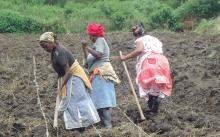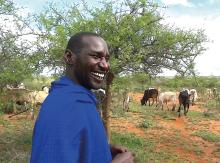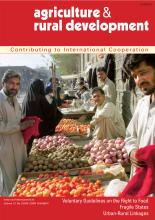Land Library
Bienvenue dans la bibliothèque du Land Portal. Explorez notre vaste collection de ressources en libre accès (plus de 74 000), comprenant des rapports, des articles scientifiques, des articles de recherche, des publications évaluées par des pairs, des documents juridiques, des vidéos et bien plus encore.
/ library resources
Showing items 1 through 8 of 8.Following the end of apartheid, South Africa’s government set itself ambitious goals with a planned land reform. However, there have since been barely any changes in the country’s agricultural structure, and the positive impacts that were hoped for on rural livelihoods have hardly materialised.
The year 2016 marks 15 years since the new wave land reforms became operational in Tanzania. Despite its ambitious goals – encouraging land registration and titling, and empowering women and other vulnerable groups – the results are disillusioning.
The Voluntary Guidelines for the Responsible Governance of Tenure of Land, Fisheries and Forests in the Context of National Food Security (or VGGT) is the first global document that addresses policy, legal and organizational frameworks that regulate tenure rights.
In 2014-2015, the Asian Farmers Association for Sustainable Rural Development (AFA) implemented a project entitled “Popularizing the VGGT Among Small Scale Farmers Organizations, Relevant National Government and Inter-governmental Organizations” with the support of the International Land Coalitio
Liberia’s government seeks to put greater emphasis on integrated cash/food crop systems with broad-based farmer participation. However, shortcomings in regulations on land transactions could threaten livelihoods in what is already a vulnerable country.
The Association of Southeast Asian Nations (ASEAN) has been trying hard to go into free trade agreements (FTAs) with different countries. It believes that this will increase trade and help members sell their export products to more markets in other countries.
Life without liberty would result in some or the other form of slavery.
Until 1978, the Afghan state was weak but stable. In contrast, rural regulatory structures that complemented the state have always been strong.







